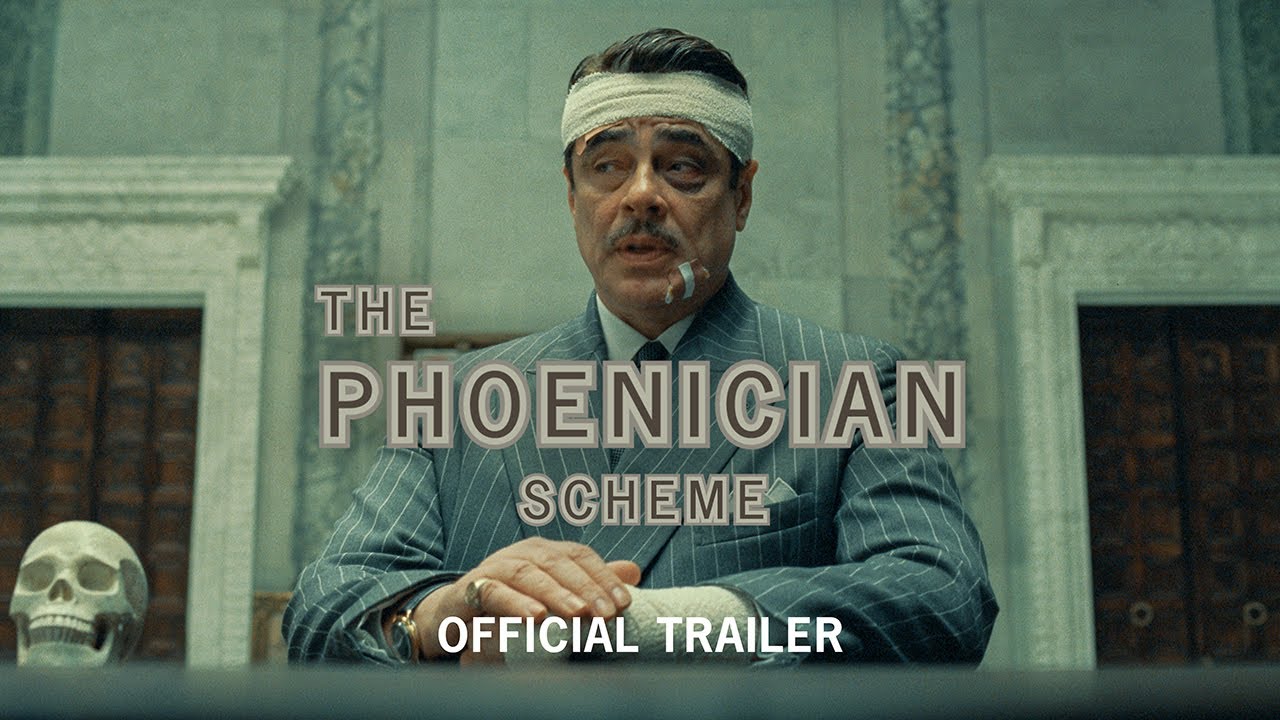The Phoenician Scheme (2025) Movie Review: A Visual Marvel Anchored by Style
Introduction
Wes Anderson returns with his twelfth film, The Phoenician Scheme, a whimsical journey through visual storytelling.
Known for his unique aesthetic, Anderson offers another chapter of cinematic art that stuns the eye and tickles the brain.
Cinematography That Paints Every Frame
Bruno Delbonnel’s cinematography transforms every scene into a moving painting.
The film features carefully composed symmetrical frames, pastel hues, and theatrical lighting.
Each shot seems choreographed with surgical precision, a trait that defines Anderson’s world.
The camera movements are restrained, relying more on tableaus than dynamic tracking.
Masterful Use of Cinematic Techniques
Delbonnel employs shallow depth of field to isolate characters in rich, layered environments.
Anderson’s beloved whip pans and center-framed close-ups appear frequently, serving both humor and emotion.
The interplay of wide shots and close-ups creates rhythm, guiding the viewer’s eye like a visual conductor.
Visual Effects as Storytelling Tools
Unlike blockbuster spectacles, the visual effects here are subtly interwoven into the fabric of the film.
Scenes such as a miniature sea voyage and a surreal monastery in the clouds blend CGI with handcrafted models.
The effects are never overbearing; they amplify the narrative’s whimsy without drawing attention to themselves.
Stylistic Fidelity and Andersonian Precision
The visuals align perfectly with Anderson’s signature tone—clean, quirky, and curated.
From lavish interiors of Phoenician mansions to absurdly ornate convent halls, each location oozes character.
The mise-en-scène includes anachronistic props and vintage tech that enrich the world-building.
Storytelling Wrapped in Visual Delight
The plot may feel thin, but the visuals keep the viewer engaged.
They offer clues, themes, and tone shifts that fill the narrative gaps.
Color symbolism, like Liesl’s muted robes contrasted with Korda’s opulent attire, adds layers of meaning.
Cast Performances Framed to Perfection
Del Toro, Threapleton, and Cera benefit from how the camera lingers or frames them in revealing compositions.
The visuals often compensate for underwritten emotional beats, especially in key character moments.
Benicio del Toro’s gravitas contrasts with the pastel lightness, creating a visually interesting tension.
Comparison with Industry Standards
Compared to recent visually rich films like Poor Things or Barbie, The Phoenician Scheme relies less on extravagance and more on composition.
While Greta Gerwig used flamboyance, Anderson uses geometry and silence.
This gives the film an artisanal feel missing from most digital-era productions.
Potential for Technical Awards
The cinematography and production design stand strong contenders for awards.
Bruno Delbonnel’s work may garner another Oscar nomination, especially given his past collaborations with visual auteurs.
The blending of analog-style VFX and digital polish makes it a likely technical category favorite.
Music and Visual Harmony
The film’s jazz and classical soundtrack, curated by Alexandre Desplat, enhances the visual rhythm.
Each musical cue aligns with the shot compositions, especially during transitional montages and silent interludes.
Behind-the-Scenes Artistry
Filmed at Babelsberg Studio in Germany, the set construction deserves special mention.
Detailed murals, custom props, and retro-futuristic architecture elevate the production beyond basic aesthetics.
Criticism and Limitations
Some may find the visuals overpower the story.
The narrative, while conceptually intriguing, doesn’t match the intricacy of the design.
A more grounded visual style may have supported the emotional arcs better.
Box Office and Viewer Impressions
At the box office, the film achieved moderate success, resonating with loyal fans of Anderson’s work.
Its artistic flair, rather than mass appeal, is the primary driver of its reception.
Cinemagoers have praised the visuals while remaining split on its overall impact.
Visuals Table
| Element | Description |
|---|---|
| Color Palette | Muted pastels and rich earth tones |
| Framing Style | Symmetrical, center-aligned |
| Lighting | Theatrical and ambient |
| VFX Integration | Minimalist CGI blended with practical models |
| Camera Movement | Static with subtle pans and tilts |
Star Rating
| Category | Rating |
|---|---|
| Cinematography | ★★★★☆ |
| Visual Effects | ★★★★☆ |
| Production Design | ★★★★★ |
| Story Integration | ★★★☆☆ |
| Overall Visual Experience | ★★★★☆ |
FAQs
Question 1
What makes The Phoenician Scheme’s cinematography stand out?
Answer 1
Its symmetry, pastel palette, and meticulous composition elevate it beyond traditional storytelling visuals.
Question 2
How effective are the film’s visual effects?
Answer 2
They’re understated but elegant, blending CGI with physical models to serve the story rather than overshadow it.
Question 3
Is the film expected to win technical awards?
Answer 3
Yes, especially for cinematography and production design, given its distinctive and polished aesthetic.
Conclusion
The Phoenician Scheme is a visual triumph, offering a cinematic experience where every frame could be a painting.
Though the story may falter, the visuals maintain a hypnotic grip from start to finish.
Disclaimer
The star rating may vary depending on viewer preferences and future re-evaluation by critics.



